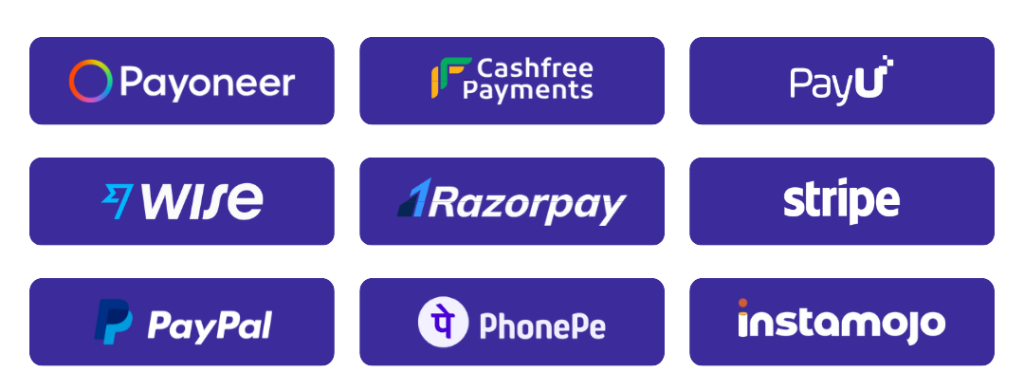
In this saturated business market which is full of competition, establishing a strong brand identity is the most important for the success of startups. A unique brand identity not only sets you apart from competitors but also builds trust and loyalty among your target audience.
To achieve this, startups must implement the best branding strategies that resonate with their values and goals. In this comprehensive guide, we’ll delve into the top strategies for building an unique brand identity that leaves a lasting impression on your audience and play the major role in establishing a successful startup.
5 Top Brand Building Strategies:
1. Understanding Your Audience and Defining Brand Identity
Before diving into branding, startups must understand their target audience. Conduct thorough market research to identify your ideal customers’ preferences, pain points, and behavior.
Zomato: Zomato, an Indian food delivery platform, invested heavily in market research to understand their audience preferences across different regions of India. This insight allowed them to craft their brand messaging and services to cater to a huge audience.
Behind every successful brand, lies a clear and defined brand identity. Start by identifying your brand’s mission, values, and personality traits. What sets your startup apart? What do you want your brand to be known for? By answering these questions, you can create a solid foundation for building a unique and compelling brand identity.
2. Crafting a Memorable Brand Story
A powerful brand story is essential for connecting with your audience on an emotional level. Share your startup’s journey, values, and visions in a way that resonates with your target audience. Whether it’s through your website, social media channels, or marketing materials, storytelling humanizes your brand and fosters deeper connections with your customers. Sharing stories is one of the best branding strategies that startups rely on.
The best way to do this, is through strategically creating and marketing your content. Startups must prefer hiring an experienced digital marketing agency.
3. Creating Consistent Branding Elements
Consistency is key when it comes to building a strong brand identity. From your logo and color palette to your tone of voice and imagery, ensure that all branding elements are cohesive and aligned with your brand’s personality. Consistent branding builds recognition and trust, making it easier for customers to identify and engage with your startup.
A well-designed logo and catchy visual identity are essential for brand recognition. Your logo should reflect your company’s values, mission, and products or services.
Apple Inc.: Apple’s iconic logo, an apple with a bite taken out of it, is instantly recognizable by almost anybody around the world. The elegance and simplicity of their logo showcases their philosophy, which describes innovation and user- friendliness.
4. Building an Engaged Community
Cultivating a community around your brand is essential for fostering loyalty and advocacy among your customers. Leverage social media marketing strategies, email marketing, and other channels to engage with your audience, solicit feedback, and encourage user-generated content. By building a community of brand advocates, you can amplify your brand’s reach and influence.
5. Evolving with Your Audience
As your startup grows and evolves, so should your brand identity. Stay alert to changes in your industry, market trends, and customer preferences, and be prepared to adapt your branding strategy accordingly. By continuously refining and evolving your brand identity, you can ensure that your startup remains relevant and hence must resonate with your target audience.
Conclusion:
By defining your brand identity, crafting a compelling brand story, maintaining consistency in branding elements, building an engaged community, and evolving with your audience, you can establish a powerful brand that resonates with your target audience and drives business growth.
We’d love to hear your thoughts on building a strong brand identity for startups. What strategies have you found the most effective? Share your insights and experiences in the comments below!
Read More : – Choose the Best Digital Marketing Agency
FAQs:
1. What are the best branding strategies for startups?
- The best branding strategies for startups include defining your brand identity, crafting a memorable brand story, creating consistent branding elements, building an engaged community, and evolving with your audience.
2. How can startups create a memorable story?
- Startups can create a memorable brand story by sharing their journey, values, and aspirations in a way that resonates with their target audience. Utilize storytelling techniques to humanize your brand and foster deeper connections with your customers.
3. Why is consistency important in branding for startups?
- Consistency is important in branding for startups because it builds recognition and trust among customers. By maintaining consistent branding elements across all touchpoints, startups can establish a cohesive and memorable brand identity.
4. How can startups build an engaged community ?
- Startups can build an engaged community around their brand by leveraging social media platforms, email marketing, and other channels to engage with their audience, gather feedback, and encourage user-generated content.
5. Why is it important for startups to evolve their identity over time?
- It is important for startups to evolve their brand identity over time to remain relevant and resonant with their target audience. By adapting to changes in the industry, market trends, and customer preferences, startups can ensure that their brand remains impactful and influential.
Check this blog to understand Why is branding so important?





Post a Comment
You must be logged in to post a comment.